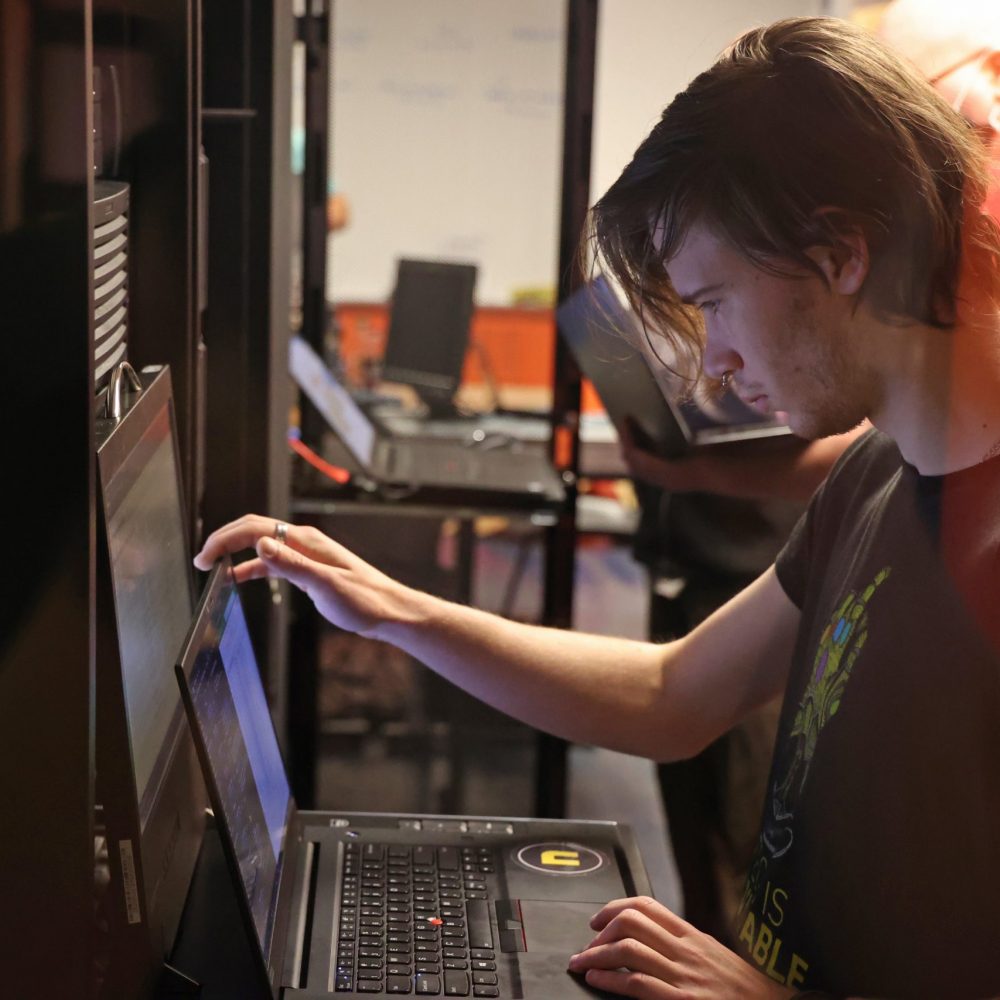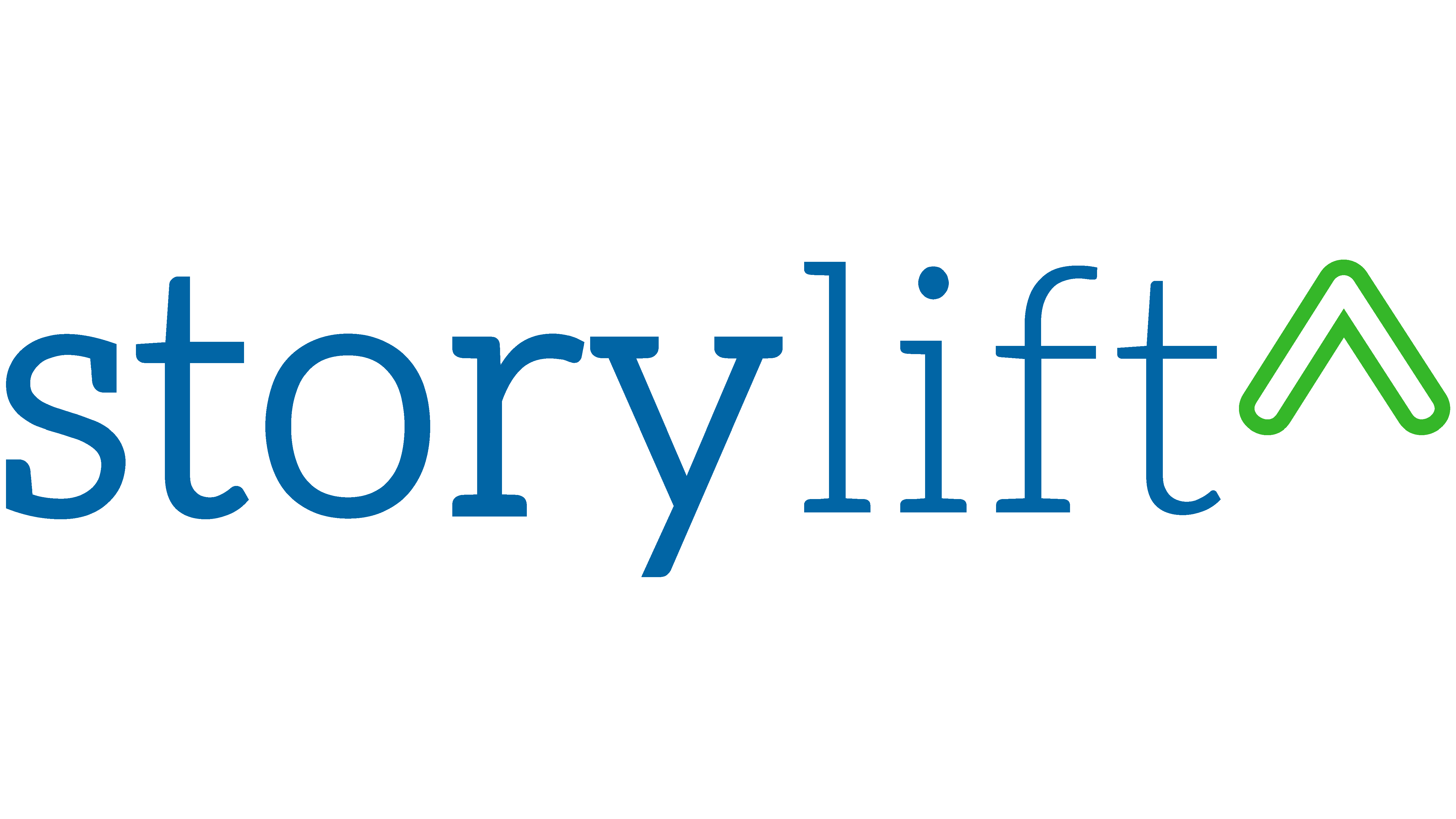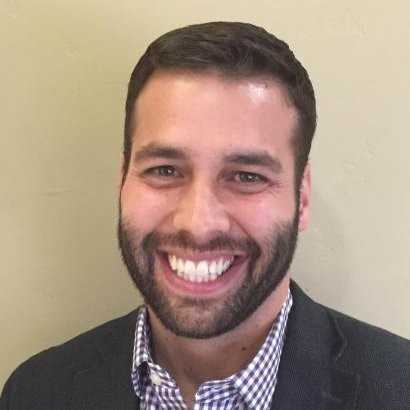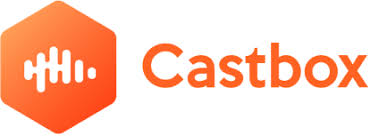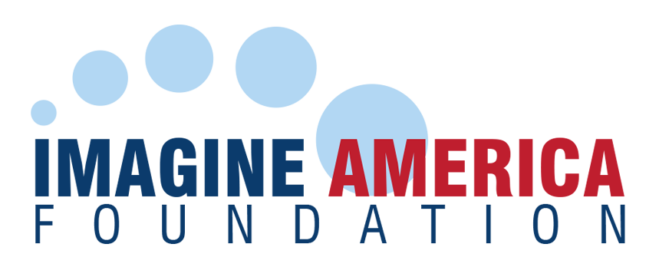More From Our Sponsor, Storylift:
If your school is looking to boost enrollments, Storylift is your solution. Storylift goes beyond simply targeting demographics and behaviors by harnessing the power of social & digital media to reach potential students with more precision.
With Storylift, you get many unique benefits, but their targeting capabilities are what truly differentiate them from others. Unlike traditional PPL methods, Storylift generates leads exclusively for your school. Their specialized targeting capabilities allow them to reach a new and relatively untouched pool of candidates which helps to avoid marketing overlap.
By engaging with audiences based on how they think and feel, Storylift delivers quality leads at competitive rates. To learn more, visit storylift.com.
Tell Me More About Neumont College of Computer Science
THE COMPUTER SCIENCE PROGRAM
BACHELOR OF SCIENCE IN COMPUTER SCIENCE
The BSCS program balances skills with theory. You’ll develop software using integrated environments and modern languages.
Through our hands-on approach, you will design algorithms and organize data. Unlike traditional theory-intensive programs, our BSCS program focuses on the complete software life cycle and in-demand technologies.
DEGREE SUMMARY
TAKE COURSES LIKE
Object-oriented Programming
Java Development
Computational Theory
Information Modeling
Scalable Web Applications
TECHNICAL SKILLS
Understand modern development environments including .NET, Java, and open source technologies.
Understand and use a variety of algorithms and data structures.
Understand agile methodologies.
Use both established and emerging software development standards and best practices.
Design effective system architectures.
Participate in all phases of the software development life cycle.
PROFESSIONAL SKILLS
Develop professional written and verbal communication skills.
Experience teamwork and group dynamics first-hand.
Practice effective problem-solving and decision-making skills.
Learn project management techniques for maximizing efficiency and resources.
Gain an understanding of business in the context of software development.
POTENTIAL CAREER OUTCOMES
Software Engineer
Software Developer
IT Consultant Mobile App Developer
Front-end Developer
OUR GUEST ON THIS EPISODE: RYAN COX
Joining us on this episode is RYAN COX, the interim vice president of Neumont college of computer science.
As an institution, Neumont College of Computer Science is filled with people who are passionate about computer science education; our mission statement and values reflect that passion and show what drives our decision-making processes. Our mission is IMPROVING LIVES THROUGH EDUCATION.
Neumont college of computer science is accredited by the Accrediting Commission of career schools and colleges (ACCSC).
Don't have time to listen? Read the transcript!
Lee Doubleday: Hello and welcome to our first episode of our Information Technology Career Series on Imagine America Radio, where we’re going to focus specifically on information technology careers—since there’s such a wide gamut of careers that are out there in the IT field. Joining us today is Ryan Cox, the interim vice president, academic operations for Neumont College of Computer Science, located in Salt Lake City, Utah. Today, we would like to discuss the future of computer science careers. As a leading provider of education in computer science, we couldn’t think of anybody better to call than Mr. Cox with Neumont College of Computer Science. So let’s start off by telling our listeners exactly what a computer scientist is. Can you briefly explain what a computer scientist does? |
Ryan Cox: Certainly. I think that can be kind of tough sometimes because computer science can feel really broad and really big. In its simplest form, if we kind of boil it down to brass tacks, computer science is about using computers to solve problems for people or make their lives better. And then how can we do that in an efficient way, in a way that’s cost-effective, and in a way that grows well over time for lots and lots of users. There are specific parts of computer science that our degrees focus on that some students might feel they have more interested in it. For example, you might find a student who really enjoys developing web applications. That’s one specific part of computer science. Or they might like creating big backend databases that power millions and millions of users and applications that house lots and lots of data. That’s another part of computer science. Or maybe networking and security and infrastructure—server administration is something that’s really interesting to those students. And all of those things and many, many others kind of roll up under the umbrella of what we would say a computer scientist is or does. |
Lee: Wow. Very cool. I like that you gave examples of what computer scientists do and you put it in terms of developing databases or network and security that people outside of this space can kind of wrap their heads around and go, “Yeah. Yeah. Okay. I know what that is.” All right. So now that we have a better understanding of what computer scientists do, can you briefly explain the career opportunity for computer scientists? What does the Bureau of Labor Statistics say about the demand for computer scientists today? |
Ryan: Yeah. Yeah, there’s a big demand—and there has been for a while, Lee—and that demand is growing as time marches on. We’ve got a couple of numbers for you. The National Association of Colleges and Employers say that from the period of 2018 to 2020—so a 10-year-period, about a decade—that we’re going to create almost 600,0000—598,000-ish—new jobs in computer science and related fields. And those are just new jobs. We’re already at a deficit. We already have more jobs in the industry than we have people available to fill those jobs, and that deficit is just going to continue to grow. Not only that, but as supply and demand works, whenever—COVID has certainly taught us that when we have a demand for something in low supply, the prices go up. We’re all feeling that. And that’s also the case with computer science professionals, as the demand for those jobs, for those professionals, continues to grow and the supply stays smaller than the demand, we’ll see the salaries continue to increase. In 2019, that same association—the National Association of Colleges and Employers—said that the average salary for a computer science degree—and related fields, information technology, and support services—was around $76,000—$77,000 almost—and continuing to grow. Since 2019, we’ve certainly seen a lot of growth in computer science salaries. |
Lee: Yeah. No kidding. And I like that you talked about COVID-19 and the impact it’s had on the industry. It just seems to me that—it seems to be a common theme. As you know, we dedicate months to our podcast channel. In the month prior to this one, we were talking about nursing. And the month before that, we were talking about medical assisting. And here we are again talking about the demand and how COVID-19 has placed, in a good way or in a positive way, opportunity for people to want to get the training and want to get entered in the workforce faster and quicker through a streamlined education. Now might be a really great opportunity. So, I knew computer science was in high demand, but I really didn’t realize the gravity of this shortage, and that’s great—but I have sort of a three-parted question for you. Number one, with this being in such demand field, should someone go to school to learn computer science? That’s the first question. The second question is what would you say to someone that says, “You could just learn to be a computer scientist through a quick bootcamp or a Udemy course. Why should I go through a more formal education like Neumont?” |
Ryan: I think that’s a great question, Lee. I love that question because it really speaks to me, personally, because that’s how I started out. I really wanted to become proficient in solving problems with computers. I don’t know that I called it computer science. But I thought I could just probably do that on my own. I bought some textbooks—because this was a long time ago. Today, you’d probably Google a lot—and I started trying to teach myself how to code. And I did a pretty good job. And most people who do that can make some progress. The problem that you’re going to run into is that there are always gaps in your knowledge. No matter how smart you are, no matter how thorough you are in the field that you’re interested in, there are always gaps that come up, and that happened to me. |
I haven’t been an academic my entire life. Before this, I ran several different businesses, had some of my own companies, and hired graduates in computer science. I’ve hired bachelor’s degrees, master’s degrees, and I’ve hired students who attended bootcamp. I’ve even hired people in desperation who self-trained and knew how to program just from their own experience at home, right, kind of taught themselves. And I can tell you from that perspective that a formal education that fills in those knowledge gaps is absolutely invaluable, not just in landing the job—I mean, that’s step one, right—but then beyond that, keeping the job and growing in that job, enjoying that job, making a healthy living, and being promoted in that space really does depend on having that solid foundation without those cracks and gaps in it to be able to build on top of. |
Lee: Yeah. And in a weird way, kind of what I’m hearing you say is that computer science in its infancy, you may have been able to get by on kind of learning on your own. But nowadays, if you want to stay competitive in this field, I mean, you’re really going to require more formal education, like you said, because there are so many gaps if you’re trying to teach yourself every single thing on your own in a complicated field like computer science, you’re going to miss something. |
Ryan: I think that’s true, Lee. I think there were still gaps originally, but I think those gaps widened over time, yeah. |
Lee: Okay. Can you tell me a little bit more about what an enterprise project is and when students take that during their time at Neumont? |
Ryan: Yeah, you bet. Enterprise projects at Neumont are part of our secret sauce. It’s one of the best parts of attending Neumont because you spend all this time at Neumont learning what happens in the industry through project-based learning, right. You’re mimicking, you’re copying, and then creating on your own. And then at the end of that, sort of the culmination of that, you actually go out in the industry and work with what we call an enterprise partner—a business, an organization outside of the college that brings our students in basically, in a sense, as part-time employees—about four hours a day—and puts them in real-world code, real-world projects, building something like we talked about earlier, that that matters, that changes people’s lives for the better. And those students have an experience doing that for a total of 30 weeks. That could be all at one company, or it could be spread over three different companies. And, almost universally, when I talk to students about their experience at Neumont, enterprise projects is one of the things they feel like best prepared them for industry. It came after the foundation of the computer science concepts and principles and skills and taught them how to apply those things to real-world problems. |
Lee: Wow, this is cool. And just so our listeners know, Neumont is a new member of the Imagine America Scholarship and Award Program. So, I was unfamiliar with the enterprise project. And I commend you guys. I think that’s a great idea. I mean, it sounds like you’re giving the students the foundational knowledge to be successful in that environment, which is important because you’re not just throwing students out there without knowing what it is that they’re doing into a company to learn sort of on their own. You’re teaching them first. And then they’re getting the practical knowledge or applying that knowledge in the workforce. I think that’s awesome. |
Ryan: Yeah, it does a couple of great things. And I’ll just mention—real quickly, while we’re on the topic—one is the students get that practical experience like you’re talking about. Two, it gives them the opportunity to sort of try on a position at a company and see, is this the part of computer science that I really do like? |
Lee: Good point. |
Ryan: Is this a good fit for me? And then, also, very often, we see that students who do enjoy that fit, that externship—that enterprise project—becomes the foot in the door to a full-time, long-term career. |
Lee: Yeah, perfect. Yeah, perfect transition right there. All right. Now, let’s say I’m a student. And I’m interested in the computer science program. What are a few things that I should be looking for? Is it teacher experience? Is it relationship with employers? And that was a big one. We kind of just talked about that. Can you give me sort of a checklist on things? Let’s say I’m a parent. And I have a student, a son or daughter, that’s looking at a school for computer science. What’s the checklist look like? Or what should I be considering in a computer science program? |
Ryan: That’s a great question. I have some kids that are getting close to that point where they’re starting to look at colleges. And they don’t have my same level of nerdiness, but they’re working on it. [laughter] We’re looking at computer science programs that might be of interest to them. And I’ll tell you the things I’m looking for. I’m looking for—yes, teacher experience, like you said. Do we have people who have done? There’s sort of that old adage. One student here at Neumont was sort of making fun of this the other day, telling me about it a little bit, saying, those who can’t do, teach. Right? We’ve all heard that. And then they sort of quickly added to the end of that, “Here at Neumont, you can’t teach until you have done.” And I think that’s really important. It’s one thing to cover the concepts and principles of computer science and theory. And that’s important. But it’s quite another to have used those yourself successfully in industry to solve problems or grow a business or grow an organization. And, until you’ve done that, it’s really difficult to be able to authoritatively teach someone else how to do it, right? It works so much better if I’m saying, “Follow me, do what I’ve done,” instead of teaching from a position of theory. So, I certainly think that’s important. I do think relationships with employers is important. But even more than just a basic relationship with the employer, what is the nature of that relationship? Enterprise projects is a great example of a good relationship. But then, on top of that, how does the college work with those employers to place students? What’s something that we do to help students find jobs? And then, I think, beyond that, I’d be looking at—if I were in my children’s position or a parent in my position—I’d be looking at average graduate salaries, starting salaries. I’d be looking at placement rates, which is, of the students graduating, how many of them are landing jobs in their field, preferably the field that they’re interested in? Those kinds of things. |
Lee: What about accreditation? |
Ryan: Accreditation certainly is important. You want to make sure you attend an institution that is reputable and is recognized by the Department of Education as providing a legitimate education, for sure. |
Lee: Okay, great. And I know Neumont is accredited—correct?—through ACCSC. |
Ryan: Correct. We are accredited through ACCSC. |
Lee: Awesome. Okay, great. All right. Now, Ryan, we deal with high school counselors and parents all the time. And some of these individuals may be looking for ways to guide their students or their family members into a career that’s a right fit for them. What would you say are two or three traits that make a great computer scientist that might help identify some of these people that are a great fit for this career? And what can students do in high school to prepare themselves to study a computer science degree in college? |
Ryan: Another great question, Lee. The first thing that comes to mind, obviously, is a knack for computers. Typically, kids that enjoy computers do well in computer science. But above and beyond that, problem solving—if you’re interested in solving problems, if that’s fun for you, puzzles and those kinds of things. Especially if you’re the kind of person who an unsolved puzzle will keep you up at night and the adrenaline of solving the puzzle is worth the pain of plotting through the puzzle, then this could be a good fit for you. It’s interesting. Over the years, the profile of a successful computer scientist has changed in at least one way. And you kind of alluded to this earlier, Lee. That is that I used to be able to do a little more of a solo mission. Kind of on my own, working in a silo, hacking out some code to create something kind of cool. But today, the projects and the environments that we’re working on are so big that that’s impractical. So, another characteristic today of a successful computer scientist is someone who’s interested in working as a member of a team and who is interested in gaining good communication skills. You don’t necessarily have to be great at that right now. But you should be open to it. |
Lee: Do you have to be really good at math? |
Ryan: Math is certainly important in computer science. I strongly recommend to focus in math. But maybe even more than math, a focus in logical thinking. Being able to step through a problem critically, understand the root cause of a problem, and use that to inform a solution, that’s probably going to be—math is critical. But it’s probably going to be even more valuable to you to be able to think logically about a problem. |
Lee: Yeah. I mean, I wouldn’t want anybody to be deterred by the M-word—math [laughter]—because it is sort of a scary subject. However, I like the way you put it. It’s more about logically thinking through how to work out a problem. And, okay, that’s a great answer. Well, I couldn’t thank you enough for being on the podcast today. We learned a little bit about the future of computer science and sort of what makes somebody a great computer science—what characteristics do computer scientists have, the average starting salary computer scientists can expect to make according to that statistic that you had read out to us. If you would like more information on Neumont, where should they go to get some more information? |
Ryan: Absolutely. First, thanks for having me, Lee. And, second, yes, there are a couple of places your listeners can go. One is our website at neumont.edu. There’s all kinds of information on the website about our college, our programs, our degree programs that we offer. And straight from that website, Lee, your listeners can either request a brochure—some more information about the college—or they can go straight into the application. |
Lee: Thank you so much for joining us today. I think it’s been another great episode of Imagine America Radio. And I want to thank all of our listeners for listening today. And I hope you take something from it. |
subscribe where you listen
COPYRIGHT IMAGINE AMERICA PUBLISHING 2021 ALL RIGHTS RESERVED PRIVACY POLICY


